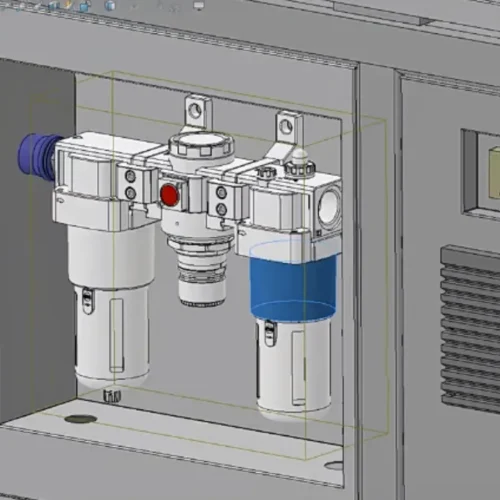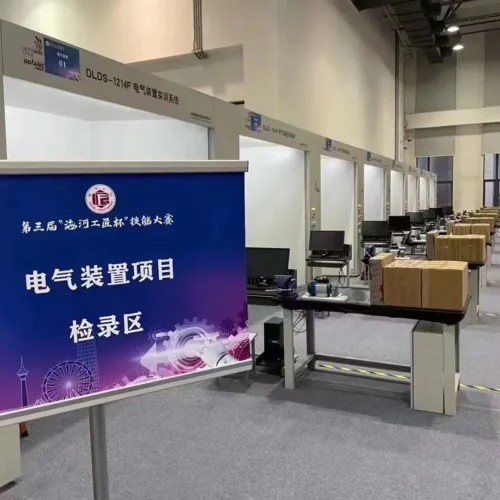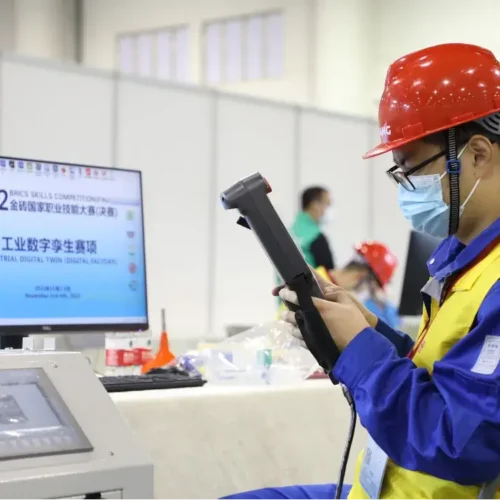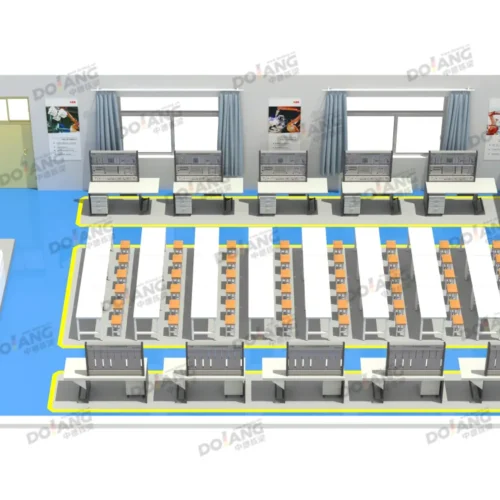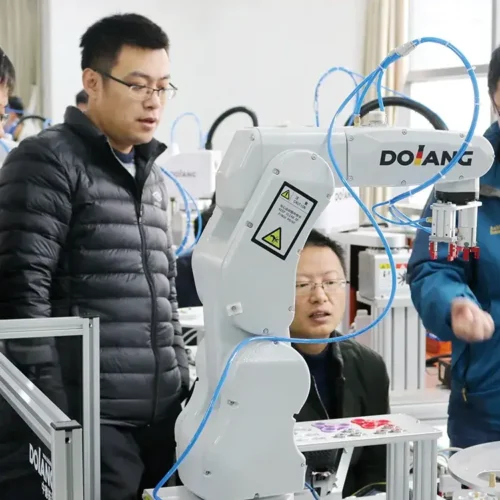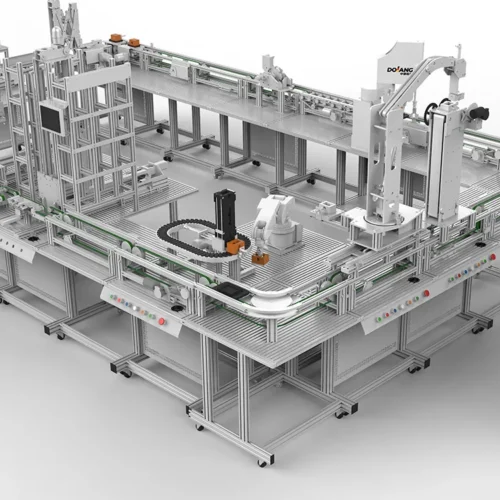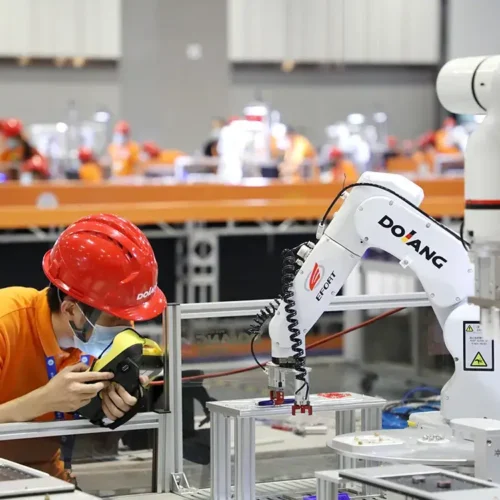Do you have a passion for machinery, a love of problem-solving, and a desire to master manufacturing processes? Then mechanical engineering is a perfect career for you. But where do you start? The path to becoming a successful mechanical engineer requires more than just a passion for technology and problem-solving. In fact, it requires a thorough understanding of various technical skills and hands-on training with the latest tools.
In this blog post, we dive into the essential training required to become a top-notch mechanical engineer. From core technical skills to critical tools, we talk about all trainings you need to become a mechanical engineer. Are you ready? Then let’s dive deep into what it takes to transform your passion into a successful career.
What is Mechanical Engineering?
Mechanical engineering is a dynamic and broad field. Engineers come up with new products using principles of physics, math, and materials science. Over this, other responsibilities include developing, testing, and evaluating mechanical systems.
As a mechanical engineer, it’s important to have an up-to-date knowledge about the latest tech and industry standards. To achieve that feat, you just need to enroll in perfect mechanical engineering training programs. Such training includes courses in material science, thermodynamics, fluid mechanics, and more.
Only the technical part is not enough. You should have strong computer and math skills. Plus, problem-solving and communication skills are also essential. And it all starts with choosing the proper mechanical engineering training that helps you to achieve your career goals.

What is the core technical training for mechanical engineers?
As a mechanical engineer, having a solid grasp of the core skills is critical to unlocking your full potential. Only then you can deliver innovative solutions that shape the world we live in. These skills include:
- Material Science
Mechanical engineering training covers material science and its properties. Also, behavioral changes in the materials are crucial to learning as a mechanical engineer. Because understanding these concepts helps in designing and creating sustainable mechanical systems.
- Thermodynamics
Thermodynamics is a fundamental part of mechanical engineering, including heat transfer and energy conversion. That’s why a mechanical engineer must have a sound knowledge of thermodynamics to handle complex engineering problems effectively.
- Fluid Mechanics
Fluid mechanics is another essential component of mechanical engineering training programs. In this training, engineers learn to analyze and design systems that involve fluid flow, ensuring efficient and safe operation.
- Mechanics
Mechanics of solids, including statics and dynamics, forms a core part of a mechanical engineering curriculum. A thorough understanding of these concepts enables engineers to create sturdy and reliable mechanical systems.
- Manufacturing Processes
Mechanical engineering training includes learning about various manufacturing processes, including casting, forging, and welding. This knowledge helps engineers in selecting the proper technique for a particular application, improving efficiency and reducing costs.
- CAM and CAD
Computer-aided manufacturing and design are must-have skills for modern mechanical engineers. Mechanical engineering training provides hands-on experience with CAD and CAM software, helping engineers to create detailed and accurate designs.
- Control Systems
Control systems and their applications, including automation and robotics, are essential aspects of mechanical engineering training. Through this training, engineers gain a deep understanding of the interplay between control systems and mechanical systems.
- Testing and Evaluation
Testing and evaluation methods, including finite element analysis, are important components of mechanical engineering training. As part of their training, engineers learn various testing and evaluation methods, including finite element analysis. The importance of rigorous testing and evaluation cannot be overstated. Because it helps to ensure that mechanical systems operate as intended and meet the expectations of their users.
- Technical Writing
The last core skill is communicating complex ideas effectively in writing which is crucial for success in mechanical engineering. For that purpose, engineer training focuses on developing these skills, helping them to present their opinions and findings professionally.
Why mathematics and computer skills are essential in mechanical engineering training?
Mathematics plays a crucial role in mechanical engineering. Engineers use mathematical models and simulations to solve complex engineering problems and make informed decisions. For that purpose, topics like calculus, linear algebra, and differential equations form the foundation of mathematical modelling.
On the other hand, computer skills are equally important in mechanical engineering. Engineers use computer-aided manufacturing (CAM) and computer-aided design (CAD) to create and produce layouts.
Moreover, they use simulation software to test and evaluate designs and computer-controlled machinery to manufacture parts. And there is no second opinion that proficiency in computer skills is essential for success in this field. That’s why almost all mechanical engineering training programs emphasize learning computer skills.
Role of industry-specific training and regulations
Industry-specific training and regulations play a crucial role in maintaining the quality and safety of mechanical systems. This training provides engineers with an in-depth understanding of the unique requirements and standards of various industries. Also, it helps to ensure that robotic systems meet the needs of these industries and comply with applicable regulations. Some of the critical areas of industry-specific training and regulations include:
Familiarize yourself with industry standards
Mechanical engineers must understand the industry standards, regulations, and safety protocols. And you can learn this knowledge during your mechanical engineering training program.
Understand codes and regulations
Mechanical engineers should know the codes and regulations governing their industry. You should understand the codes and regulations affecting your work as a professional. Plus, make sure to learn how you can implement your knowledge.
Attend workshops and training programs
Mechanical engineers should attend workshops and training programs to stay up-to-date with the latest developments. This training helps you to improve your skills and knowledge and remain competitive in your industry.
Soft Skills for Success in Mechanical Engineering
In the field of mechanical engineering, technical skills are important. But soft skills are equally critical for success. For example, strong communication, collaboration, and problem-solving skills are must have in this field. A mechanical engineer should know how to present ideas and work effectively with team members.
Moreover, time management, adaptability, and leadership are also critical skills for mechanical engineers. The reason is practical time management helps engineers meet deadlines and manage workloads. Plus, leadership skills help engineers guide teams and make crucial decisions. These soft skills are essential components of comprehensive mechanical engineering training.
How to get hands-on experience, and why it is mechanical engineer training requirements?
Through hands-on experience, mechanical engineers can learn how to design, build, test, and troubleshoot mechanical systems. To get hands-on experience, you can try following methods:
Internships
- Gaining mechanical engineering technician training internships.
- Working alongside experienced mechanical engineers.
- Applying mechanical engineering training to real projects.
- Understanding company culture and operations.
- Building a professional network and potential job opportunities.
Co-Op Programs
- Combining academic study with on-the-job experience.
- Rotating through different departments for diverse learning.
- Developing hands-on skills and technical knowledge.
- Understanding industry-specific regulations and practices.
- Boosting employment prospects after graduation.
Practical Workshops and Projects
- Engaging in hands-on projects and workshops.
- Designing, building, and testing mechanical systems.
- Enhancing critical thinking and problem-solving skills.
- Collaborating with classmates for team-based projects.
- Strengthening practical skills and real-world applications of mechanical engineering training.
Essential Mechanical Engineering Training Equipment
As a mechanical engineer, it’s important to have hands-on experience in the field. Because practical training opportunities can give aspiring engineers a taste of real-world engineering projects and their challenges. But hands-on training goes beyond just on-the-job experience.
There is specific training equipment which provides a comprehensive education in the core technical skills of mechanical engineering.
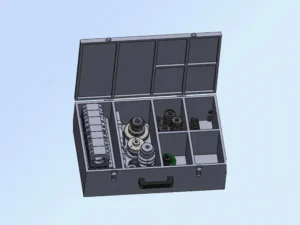
One such tool is the DLJX-ZX01 Combined Shafting Mechanical Training Equipment. This educational device is here to teach students about the creation and analysis of shaft system structures. By using this equipment, students can gain practical knowledge and hands-on experience in this area of mechanical engineering.
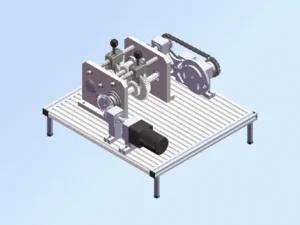
The DLJX-CX01 Mechanical Training Equipment is another valuable tool in the training for mechanical engineering. It consists of a collection of components, including sprockets, worm gears, spur gears, spline shafts, and standard measuring tools. These elements provide a comprehensive mechanical engineering vocational training experience. These elements equips students with the knowledge they need in the field.

The DLJX-JXXT Mechanical System Teaching Workbench is a tool to use in technical colleges, vocational schools, and training institutions. This device provides hands-on learning opportunities by incorporating real-world mechanical systems and structures into its design. Additionally, this allows students to gain practical experience with the selection, installation, maintenance, and repair of mechanical transmission components.
By using these tools and equipment, aspiring mechanical engineers can supplement their theoretical knowledge with practical experience.
Professional Certifications, Networking, and Mentorship for Mechanical Engineers.
As a mechanical engineer, the most effective way to progress in your career is through professional certifications, networking, and mentorship.
Professional Certifications
Obtaining professional certifications in mechanical engineering demonstrates an individual’s expertise and commitment to the field. It provides an advantage in the job market and adds credibility to an engineer’s professional portfolio.
Networking
Building and maintaining a solid professional network is critical for mechanical engineers. Because networking helps you stay up-to-date on industry trends, exchange ideas with colleagues, and learn about new job opportunities. Joining professional organizations such as ASME or SAE can be a valuable resource for networking and professional development.
Mentorship
A good mentor can fast track your success as a mechanical engineer. So, you should establish a mentorship relationship with an experienced engineer who has a successful career. In return, you can get valuable insights and advice, which is essential for career growth and development.
Conclusion
In conclusion, becoming a mechanical engineer requires a well-rounded education that covers a range of technical skills and knowledge. You need to cover material science thermodynamics, fluid mechanics, manufacturing processes and everything in between. Many mechanical engineering education and training are available to equip aspiring engineers with the tools they need to succeed. So why wait? It’s time to take action. Go and find out the limitless potential of this exciting and challenging field.



